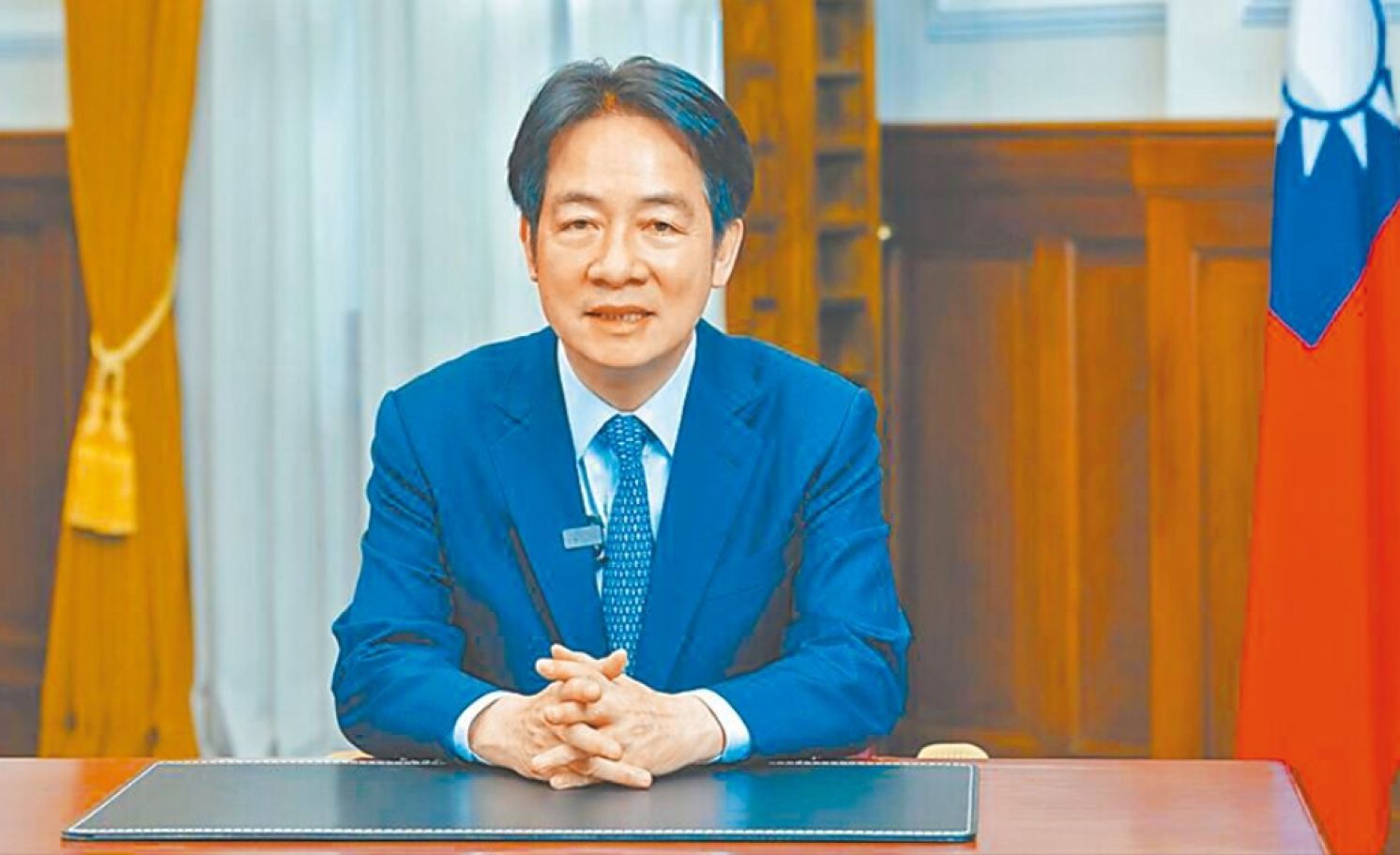
President Lai's Domestic and Foreign Media Interviews Contradictory
By Su Yung-lin, China Times, May 13, 2025
As President Lai Ching-te approaches his first anniversary in office, he has recently given a series of interviews to both domestic and international media to outline his key policies on economic affairs, diplomacy, and cross-strait relations. These interviews—including one published by Wealth magazine on May 7 and another by Nikkei on May 13—clearly aim to review his administration’s performance over the past year and set the tone for future policy direction. Paradoxically, however, President Lai's statements on Taiwan’s economic and industrial strategies differ significantly between the two interviews.
For example, in the Wealth interview, President Lai specifically clarified that the concept of "decoupling from China and aligning with the North" is merely the opinion of certain scholars. He emphasized that the government’s current industrial development policy is to “root in Taiwan, strengthen ties with the United States, expand globally, and market to the world.” He even added, “Expanding globally certainly includes China.” President Lai acknowledged that the cross-strait industrial supply chain, built over decades, cannot be dismantled overnight and requires time to adjust. Thus, it appears that President Lai was attempting to distance himself from the “decoupling” rhetoric and to underscore continued economic ties with China—likely in an effort to reassure the domestic business community.
However, when the Nikkei interview was published, readers were surprised to find that it strongly echoed and even amplified the narrative of “decoupling from China.” The interview described China as “the greatest threat,” accused it of “dumping low-priced goods globally,” noted that “in 2010, 83.8 percent of Taiwan’s outbound investment went to China, but last year it dropped to just 7.5 percent,” and claimed that “we are directly facing China’s threats.” Building on this, President Lai proposed forming a “non-red supply chain” alliance among democratic nations such as the United States, Japan, and the Netherlands to ensure the continuation of free trade and protect global prosperity from the harms of underpriced Chinese exports.
Furthermore, in the Wealth interview, President Lai emphasized that “strengthening ties with the United States” is a core part of Taiwan’s industrial policy. He further stated that Taiwan is willing to cooperate with the United States to address the trade deficit and that Taiwan’s exports contribute to American technological development, showcasing Taiwan’s strategic importance to the American economy. Taiwan, he claimed, could help reindustrialize America and play a key role in making the United States a global AI hub. Yet in the Nikkei interview, the phrase “strengthen the United States.” was conspicuously absent, and Taiwan’s role was downgraded to one of simply “assisting and integrating into” the American market.
Why the discrepancy in tone and messaging between the domestic and foreign interviews? On one hand, it may reflect audience targeting: Wealth is read primarily by domestic citizens, industry elites, and Taiwan-based cross-strait businesses. Therefore, President Lai may have felt compelled to clarify that “decoupling from China” is not official policy and to reaffirm economic ties with the mainland. In contrast, when addressing foreign readers and governments via Nikkei, he adopted a starkly different stance, presenting a more confrontational position toward China.
On the other hand, President Lai may also have been mindful of global discontent with U.S. President Donald Trump’s trade war, particularly the skepticism it has drawn from Japanese political and business circles. Hence, he deliberately downplayed the “strengthen the United States” rhetoric in the Nikkei interview. Domestically, however, in order to counter skepticism toward the United States, he was willing to endure criticism to loudly proclaim “America First.”
This discrepancy between President Lai’s domestic and international interviews may be strategically calculated, but it nevertheless exposes a serious contradiction in the articulation of Taiwan’s economic and trade policy. Now that the United States and China have completed their first round of trade negotiations and agreed on a 90-day tariff truce—with Mr. Trump inadvertently stating that China’s full market opening to the United States would be “very conducive to unification and peace”—even though the U.S. Department of State quickly sought to downplay the remark, sleepless nights for Taiwan’s senior officials may have only just begun.
From: https://www.chinatimes.com/opinion/20250513004376-262104?chdtv
〈Back to Taiwan Weekly Newsletter〉